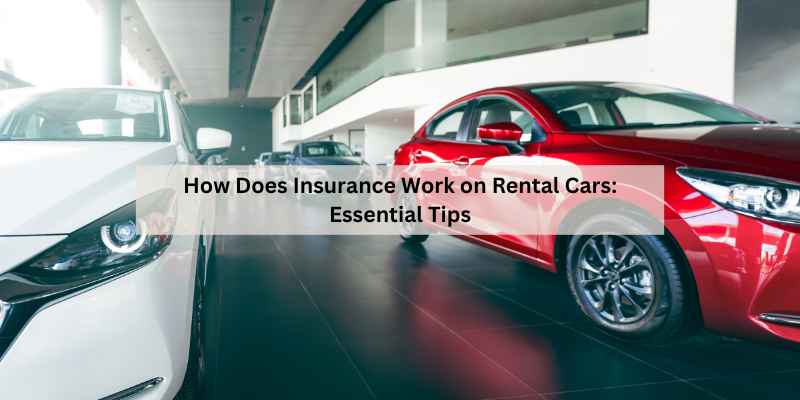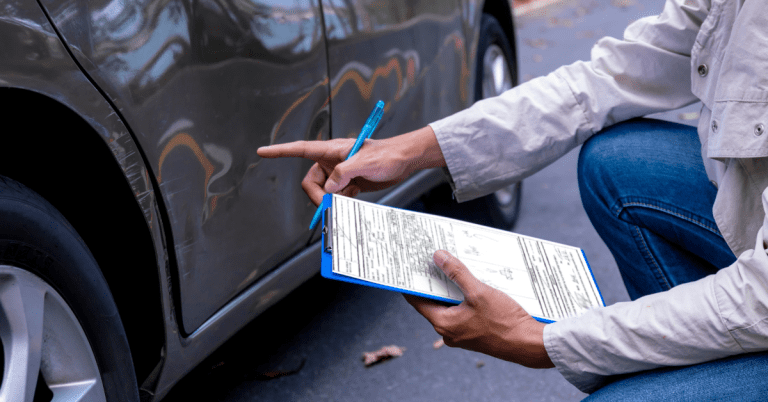How Does Insurance Work on Rental Cars: Essential Tips
Insurance for rental cars typically involves coverage from your personal auto policy, credit card benefits, or the rental company’s insurance. Each option has specific terms and conditions that dictate coverage limits and responsibilities.
Renting a car can be an exciting experience, but understanding insurance options is crucial. Many people overlook the importance of insurance, believing their personal auto insurance covers rentals. This assumption can lead to unexpected costs in case of an accident.
Rental car companies offer various insurance options, from basic liability to full coverage. Knowing what each plan includes helps you make an informed decision. With the right information, you can enjoy your trip without worrying about potential financial pitfalls. Understanding your coverage options ensures a smoother rental experience.
Introduction To Rental Car Insurance
Rental car insurance protects you in case of accidents or damages. It is important to understand your coverage options. Most rental companies offer insurance. This can include collision damage waivers and liability coverage.
Some people think their personal car insurance covers rental cars. This is not always true. Check your policy to see what it covers. Credit cards may also provide some rental insurance.
| Type of Insurance | Description |
|---|---|
| Collision Damage Waiver | Covers damage to the rental car. |
| Liability Coverage | Covers damages to other people and property. |
| Personal Accident Insurance | Covers medical expenses for you and passengers. |
| Personal Effects Coverage | Covers theft of personal items in the car. |
Understanding these options helps you make smart choices. Always read the rental agreement carefully.
Types Of Rental Car Insurance Coverage
Collision Damage Waiver (CDW) helps cover costs if the rental car gets damaged. This option often limits your financial responsibility. It usually means you pay little or nothing for repairs.
Supplemental Liability Protection (SLP) offers extra coverage for damage to other people’s property. It protects you if you’re found at fault in an accident. This insurance can save you from large bills.
Personal Accident Insurance (PAI) provides medical coverage for you and your passengers. It pays for hospital bills after an accident. This coverage is important for peace of mind while driving.
Personal Effects Coverage (PEC) helps protect your personal items in the rental car. If your belongings get stolen, this insurance can reimburse you. It offers extra safety for valuable items.
Credit Card Insurance For Rental Cars
Many credit cards offer rental car insurance as a benefit. This coverage can save you money if you rent a car. Typically, it covers collision damage and theft. Always check your card’s terms for specifics. Most cards require you to decline the rental company’s insurance.
Limitations exist with credit card insurance. Coverage may not apply in every country. Some cards exclude certain vehicle types, like luxury cars or trucks. There might also be limits on the amount covered. Always read the fine print before relying on this benefit.
| Limitation | Description |
|---|---|
| Geographic Restrictions | Coverage may not be valid in specific countries. |
| Vehicle Type Exclusions | Luxury cars and trucks might not be covered. |
| Coverage Limits | There may be caps on the total amount covered. |
Should You Buy Rental Company Insurance?
Choosing to buy rental company insurance has both pros and cons. On the plus side, it can offer peace of mind. You won’t stress about damages or theft. This type of insurance can cover many costs. It often includes liability coverage, which protects against accidents.
On the downside, this insurance can be expensive. It might add a significant amount to your rental bill. If you already have personal auto insurance, you may not need it. Always check your current policy to avoid paying for unnecessary coverage.
| Pros | Cons |
|---|---|
| Peace of mind | Can be expensive |
| Covers damages | May duplicate existing coverage |
| Includes liability coverage | Not always needed |
Understanding Your Personal Auto Insurance Policy
Understanding your personal auto insurance policy is vital. This policy may cover rental cars under certain conditions. It usually applies when you have liability coverage. This means if you cause an accident, your insurance may help pay for damages.
Many policies do not cover collision or comprehensive damage to a rental car. Check if your policy offers rental car coverage. This coverage can help pay for repairs or theft.
Insurance gaps can create problems. Some policies might exclude certain types of rentals. Always read your policy carefully to know what is covered.
Consider contacting your insurance agent for clarity. They can explain your coverage and help you understand your options.
International Rentals: Navigating Foreign Insurance
Different countries have unique insurance requirements for rental cars. Some may require basic coverage. Others might demand full insurance protection. Always check local laws before renting.
Many credit cards offer international insurance benefits for rental cars. This coverage can save money on insurance fees. Not all cards provide the same benefits. It’s important to read the terms carefully.
| Country | Insurance Requirement |
|---|---|
| Italy | Basic liability insurance required |
| Australia | Third-party insurance needed |
| Japan | Mandatory insurance coverage |
Claims Process For Rental Car Insurance
Filing a claim for rental car insurance involves several simple steps. First, notify the rental company about the damage. They will need details to process your claim. Next, contact your insurance provider. Provide them with the necessary information from the rental company.
Gather all documents related to the incident. This includes photos, receipts, and police reports if available. Submit these documents to both the rental company and your insurer. Keep copies for your records.
Follow up regularly with both parties. This helps ensure your claim is processed quickly. Be ready to answer any questions they may have during this time.
Essential Tips Before Renting A Car
Before renting a car, carry important insurance documents. These documents can help in emergencies. Make sure to have your personal auto insurance policy. It may cover rental cars.
Ask the rental agency specific questions. Inquire about their insurance options. What coverage do they offer? Check if your credit card provides rental car insurance. This can save you money.
Always clarify the deductible amount. Understand what you need to pay in case of an accident. Confirm if collision damage waiver is included in the rental agreement.
Ask about liability coverage. It’s crucial for protecting against damages to others. Always ensure you’re fully covered before driving off.
Common Pitfalls To Avoid With Rental Insurance
Many people face overlapping coverage issues with rental cars. Check your personal auto insurance policy first. It may cover rental cars. If you have credit card insurance, understand its terms. Some cards offer rental car coverage but not for all situations.
Reading the fine print in rental insurance policies is crucial. It often contains important details. Rental companies may have specific exclusions. Knowing these can save money and prevent headaches. Always ask questions about what is and isn’t covered. This helps avoid surprises later.
Conclusion: Making An Informed Insurance Decision
Understanding rental car insurance is crucial for every renter. Knowing what coverage you need can save money and stress. Many rental companies offer basic insurance options. These often include collision damage waiver and liability coverage.
Review your own car insurance policy first. It may cover rental cars as well. Credit cards might also provide some insurance benefits. Always check the details before deciding.
Here are some key takeaways for renters:
- Always read the rental agreement carefully.
- Understand the different types of coverage available.
- Ask questions about what is not covered.
- Consider your personal insurance options.
- Document the car’s condition before driving off.
Frequently Asked Questions
How Does Rental Car Insurance Work?
Rental car insurance provides coverage for damage, theft, or liability while using a rental vehicle. It typically includes collision damage waiver, liability protection, and personal accident insurance. Depending on your personal auto insurance or credit card benefits, you may already have some coverage, so check before purchasing additional insurance.
What Types Of Insurance Are Available For Rentals?
There are several types of insurance for rental cars, including Collision Damage Waiver (CDW), Liability Insurance, and Personal Accident Insurance. CDW covers damage to the rental car, while Liability Insurance protects against damage to other vehicles or property. Personal Accident Insurance covers medical expenses for injuries during the rental period.
Do I Need Insurance For A Rental Car?
While not legally required, having insurance for a rental car is highly recommended. It protects you from potential financial liability in case of accidents or damage. If you already have auto insurance or a credit card that covers rentals, you may not need to purchase additional coverage from the rental company.
Can I Use My Personal Insurance For A Rental Car?
Yes, you can use your personal auto insurance for a rental car. Most policies extend coverage to rental vehicles, including liability and collision protection. However, it’s crucial to verify your coverage limits and terms before relying solely on your personal insurance for rental cars.
Conclusion
Understanding how insurance works on rental cars is essential for smart decisions. Always check your existing coverage first. Know the options offered by rental companies. This knowledge protects you from unexpected costs. Being informed ensures a smooth rental experience. Drive confidently, knowing you have the right protection in place.







